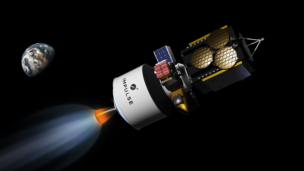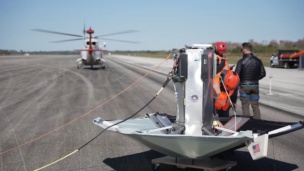Space is “increasingly contested, congested, and competitive,” NATO writes in its newly released overarching space policy (emphasis ours). Those three C’s in space require allies to be ready to “operate in a disrupted, denied, and degraded environment.”
Monday represents NATO’s first public articulation of its space policy. NATO first declared space an operational domain and created a classified policy in late 2019. Last year, NATO released a communiqué saying an attack against one ally in space would be treated like an attack against them all. Article 5 beyond Earth’s upper atmosphere?
The key policy points:
- “Integrating space” into NATO’s core tasks
- “Serving as a forum” for political/military decision-making and intelligence-sharing
- “Ensuring effective provision of space support and effects to the Alliance’s operations, missions and other activities”
- Spearheading interoperability between allied countries’ space capabilities
NATO says that it needs space systems for situational awareness, intelligence-gathering, surveillance/reconnaissance, monitoring of Earth-based domains, satellite communications, position/navigation/timing, and shared early warning.
But…NATO explicitly notes that it doesn’t intend on becoming an “autonomous space actor,” but rather, will rely on member states’ voluntary contributions. Reading between the lines, NATO’s space policy has a decent dose of definitional ambiguity, CSIS’s Kaitlyn Johnson told Axios. NATO could be giving itself some face-saving leeway in the event space saber-rattling reaches a new, more dangerous level of brinkmanship.
NATO’s reluctance to publicize its space policy in the first place may be explained by some European member states’ stated opposition to militarizing space, Breaking Defense observes. The timing is nonetheless notable, as Russian military forces build up on the Ukraine border.




